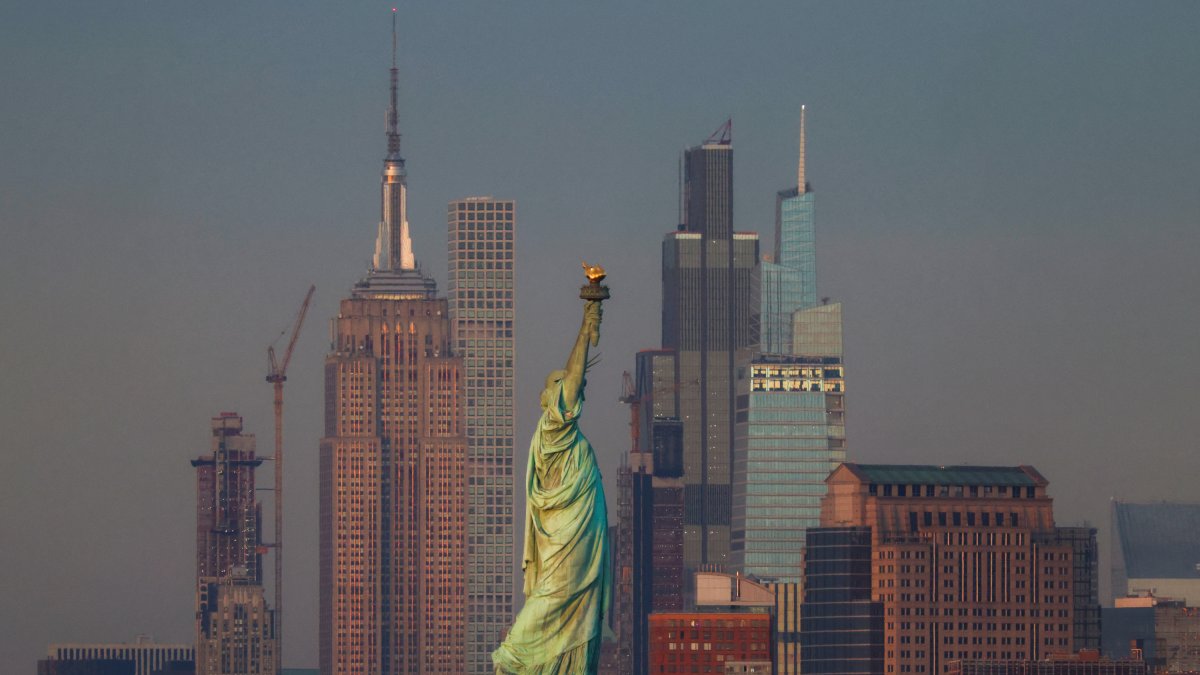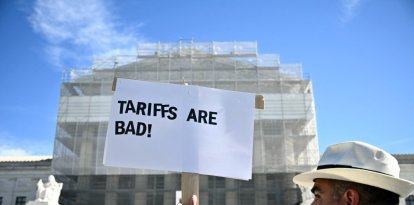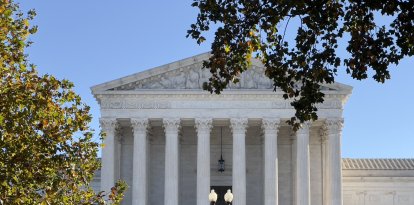ANALYSIS
Patriotism plummets among Democrats
Only 36% of party members say they are extremely or very proud, down from 62% last year. For Republicans, pride in being an American has been much more stable, traditionally registering above 90%, including 92% this year.

Statue of Liberty, USA
Pride in being American is plummeting among Democrats. This was revealed by a Gallup poll that showed only 36% of party members say they are extremely or very proud, down from 62% last year. This is only the second time Democratic pride has fallen below the majority level, along with 42% in 2020.
The data is more devastating when compared to Republicans' pride in being American. The level of national pride in this group has been much more stable, typically registering above 90%, including 92% this year, versus 85% in 2024. The only years in which fewer than nine in 10 Republicans were proud were 2016 and 2020 to 2024.
Overall, 58% of U.S. adults say they are "extremely" (41%) or "very" (17%) proud to be American, 9 percentage points lower than last year and 5 points below the previous low in 2020.
The 41% saying they are "extremely proud" is not a statistically significant difference from the previous lows of 38% in 2022 and 39% in 2023, which, according to Gallup, suggests that most of the change recorded this year is due to a reduction in the percentage of people who are "very proud."
The poll
The decline of patriotism
In January 2001, when Gallup first asked the national pride question, 87% said they were extremely or very proud. After the Sept. 11 terrorist attacks, that percentage rose to 90% and remained in that range or higher between 2002 and 2004.
Meanwhile, the number who felt extremely or very proud dropped to 83% in 2005, but remained relatively stable near that level for the next 11 years. In 2017, there was a new low of 75% in those who reported feeling proud, and since then national pride has continued to decline.

Opinion
Who’s safeguarding the legacy of the ‘Greatest Generation’ on Memorial Day?
Jonathan S. Tobin
Pride in different generations
In addition, the survey pinpointed that younger generations are less proud than older Americans. The study noted that each new generation is significantly less likely than the previous one to say it is extremely or very proud to be an American.
"This finding is based on the average level of pride expressed by the various generational groups across five 5-year periods since 2001. The resulting sample sizes allow for robust comparisons at each time period between groups as well as evaluation of changes over time," the survey noted.
For example, the two youngest generations, Millennials (born between 1980 and 1996) and Generation Z (born after 1996), show the largest differences. Between 2021 and 2025, less than half (41%) of Generation Z adults have expressed feeling extremely or very proud to be American, compared to 58% of Millennials. This percentage rises to 71% for Generation X, 75% for Baby Boomers and 83% for the Silent Generation.
Despite their increased expression of pride, all generations, from Millennials to the Silent Generation, have shown declines of 10 points or more in the percentages of extremely or very proud people since 2001-2005. Most of this change has occurred since 2016.
In the most recent period, about 44% of Millennial Democrats and 56% of Generation X Democrats are extremely or very proud to be American. However, these numbers far outnumber the 24% of Generation Z Democrats who express that same pride.
"Notably, more Gen Z Democrats say they have little or no pride in being an American (32%) than say they are extremely or very proud," the survey highlighted.

























